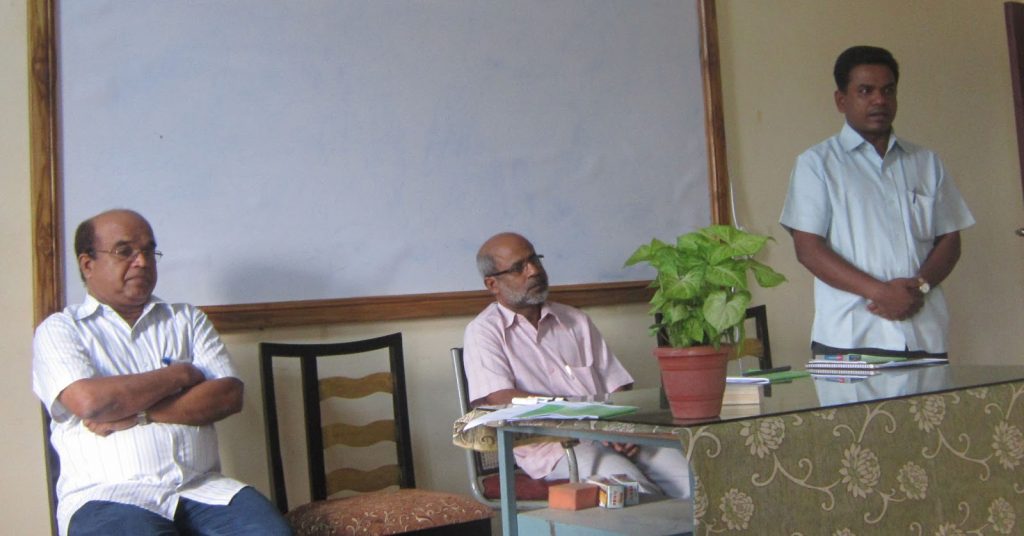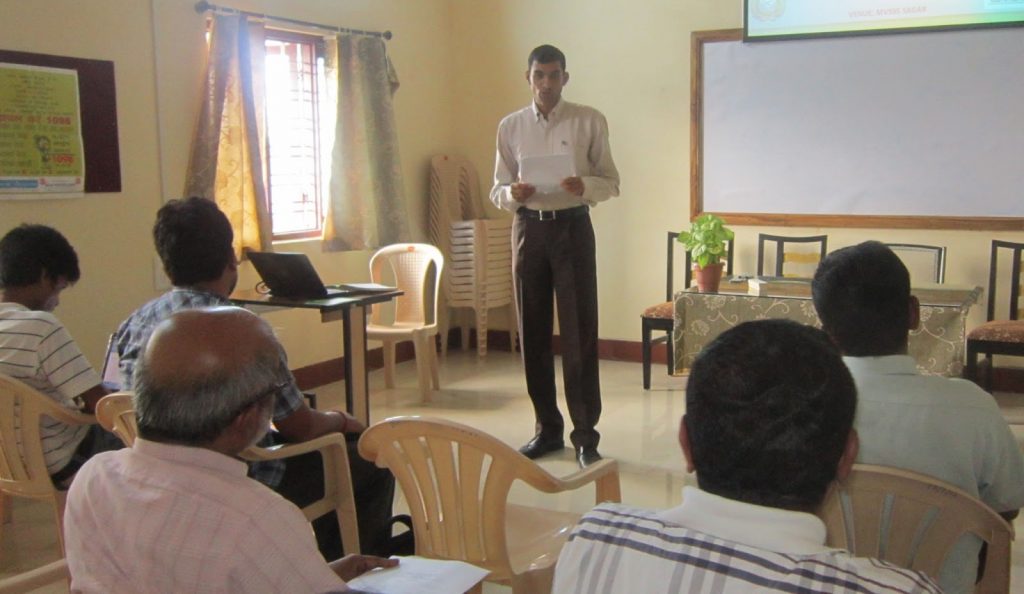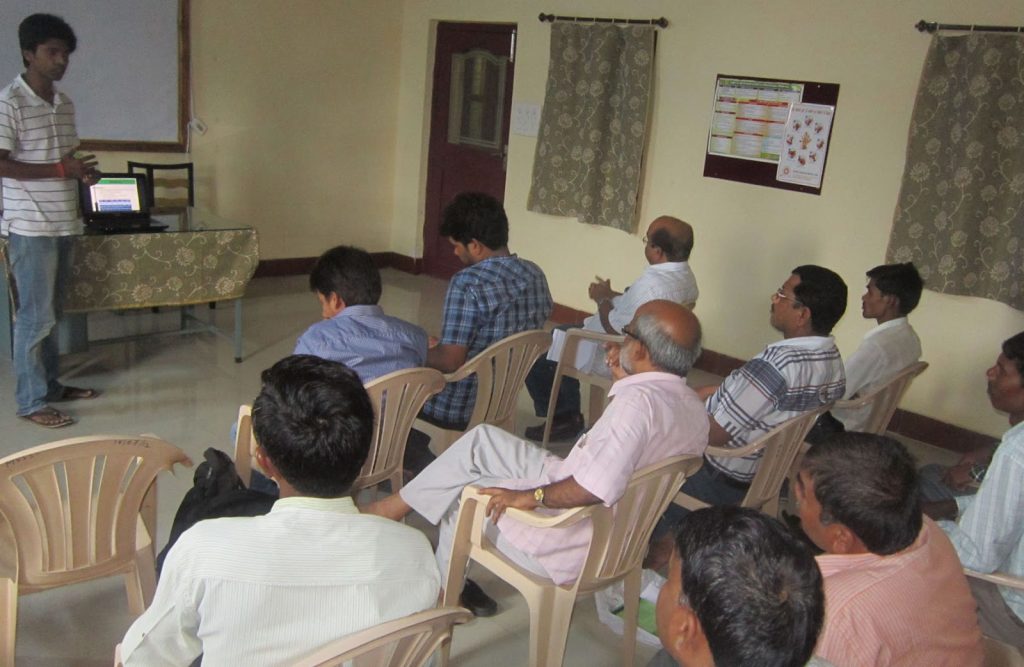
Wheat cultivation models developed by Caritas India’s SAFBIN programme registered up to 275 per cent increase in production and brought down the input cost by up to 80 per cent. This information was shared during SAFBIN’s quarterly review meeting held in Sagar on 4 July 2013. The review meeting, attended by SAFBIN teams from 3 districts and representatives of partner organisations, took stock of the progress of monsoon crop trials being implemented for developing climate change resilient models of wheat, black gram and paddy cultivation.

Fr. Shaju of MVSS Sagar addressing the review meeting
Successes of winter crop season trials and plans for Kharif trial implementation were also shared during the review meeting. SAFBIN team presented the analysis of Rabi trials on wheat and vegetables and the superior performance of trials over farmer’s plots in terms of productivity and resistance to pest attacks. Smallholder farmers, encouraged by the trial successes, have decided to adopt the package of practices of successful models and replicate these models on bigger plots.
Mr. Saju MK, national programme coordinator, welcomed the participants and gave an overview of SAFBIN programme. “Caritas India is committed to securing food and nutrition security of smallholder farmers by helping them develop agriculture models that are environmentally sound and climate change resilient. SAFBIN programme is an innovative intervention of Caritas India for making small farming profitable and sustainable”, Mr. Saju said. He further said that the monsoon crop trials on wheat, paddy and black gram will focus on the severest vulnerabilities identified by small holder farmers. Fr. Shaju Devassy, director of Manav Vikas Seva Sangh (MVSS), in his keynote address appreciated Caritas India for the innovative intervention to address climate change threats to agriculture. He underscored the necessity of assisting small farmers in identifying and implementing agriculture models that are robust enough to deal with the challenges of climate change.

Mr. Saju MK sharing about the achievements of SAFBIN
Strengthening Adaptive Farming in Bangladesh, India and Nepal (SAFBIN) is a European Union (EU) supported agriculture research and development programme that seeks to develop sustainable agriculture models that can withstand the perils of climate change. Analysis of the completed trials prove that the candidate models developed by SAFBIN are more robust, resilient and locally viable in the context of climate change and its adverse effects on small farming systems. Small holder farmers developed candidate models by conducting trials which combine good practices of traditional and modern farming systems. SAFBIN also creates village level reflection platforms for smallholder farmers who depend on rain-fed farming for subsistence. The project is being implemented in ten each villages of Mandla, Sagar and Satna districts of Madhya Pradesh.
District officers informed the review meeting that the trials have generated tremendous interest among small holder farmers and large number of smallholder farmers have decided to adopt the ‘blended’ solution for meeting threats posed by climate change to agriculture. All trials in the last three seasons were blended agriculture models which incorporated the positives of mainline agriculture research and traditional farming practices of communities.

Mr. Vivek, DPO of Satna, speaking on trials
SAFBIN, this year, is also focusing on reviving cultivation of Kodo millet which used to be the main pillar of food security of a sizable chunk of population, especially the tribal communities in Central India. However, in the past couple of decades, cultivation of Kodo had drastically declined thereby exposing a large section of rural population to risks of food and nutrition insecurity. Trials of Kodo millet cultivation using indigenous varieties and local inputs will be implemented in all three project districts. Apart from conducting trials on food grain and Kodo millet, SAFBIN is also promoting the cultivation of Moringa Oleifera, fruit trees, tomato and okra.
The review meeting concluded with the vote of thanks by Mr. Saju MK.